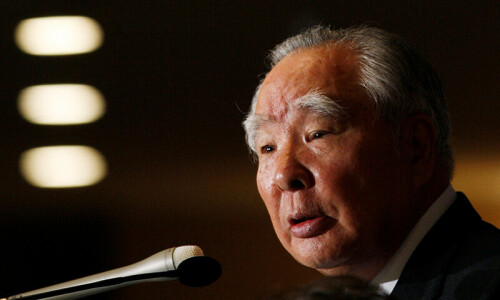ISLAMABAD: There are very few facilities for people with disabilities in Pakistan, says Shafaqat Ali, who is visually impaired.
After graduating from the Punjab University, he went on to earn an M.Ed in special education and wants to start an M.Phil but is facing problems regarding access to computers.
“I try to use computers in various computer labs, but it becomes a problem for me and other users. An accessibility centre has been established in the Allama Iqbal Open University (AIOU) for special persons which has made research easier for me,” he said.
Mr Ali suggested such facilities should be made available across the country and in all educational institutions so those with disabilities can benefit.
Matloob Hussein, who is also visually impaired, told Dawn it is possible for him to continue with his education due to the centre.
“Before this, I used to request people to write my assignments for me and I would be discouraged by them. But I have started learning how to type due to which it will be possible for me to continue with my studies and get a higher education,” he said.
“Because of this centre, I do not feel dependent. The software helps visually impaired people access the internet, lets me hear and read various articles and also helps me learn how to type,” he added.
According to Dr Waseem Khawaja of the Pakistan Institute of Medical Sciences, there are an estimated 1.5 million visually impaired people in Pakistan.
“Blindness can be avoided in 80pc of the cases with timely treatment, but due to lack of resources, governments do not give proper attention and funds to address the issue,” he said.
The doctor said children should be checked when they are at school in order to avoid complications from eye diseases and that basic facilities should be provided to visually impaired people.
Dr Waseem said educational institutions were responsible for providing facilities to visually impaired students.
AIOU Vice Chancellor Prof Dr Shahid Siddiqui said he was surprised to learn that the library and computer centre at the university was closed on the weekends and were only kept open during office hours.
He said when he assumed office, he directed for the centre to be opened from 8am to 7pm and on the weekends as well. The centre is now also open to the public and not just students of the university.
“Dozens of visually impaired people and those with other disabilities come to the accessibility centre to use the computers. We have also provided printers, photocopiers, binding facilities and scanners,” he added.
Dr Siddiqui said after getting a positive response, he has directed that similar facilities should be provided at the university’s other campuses and suggested other educational institutions do the same.
Published in Dawn, August 15th, 2017











































